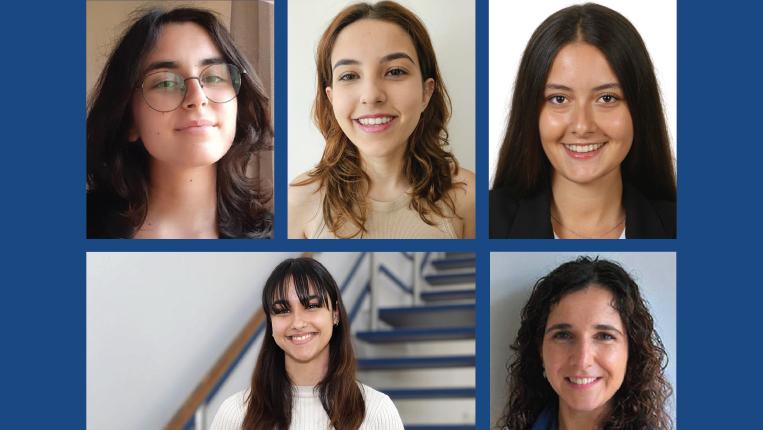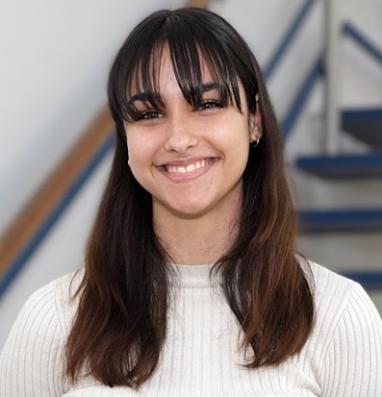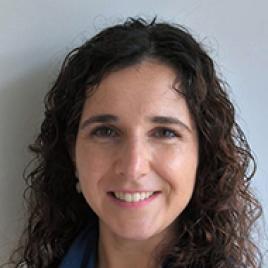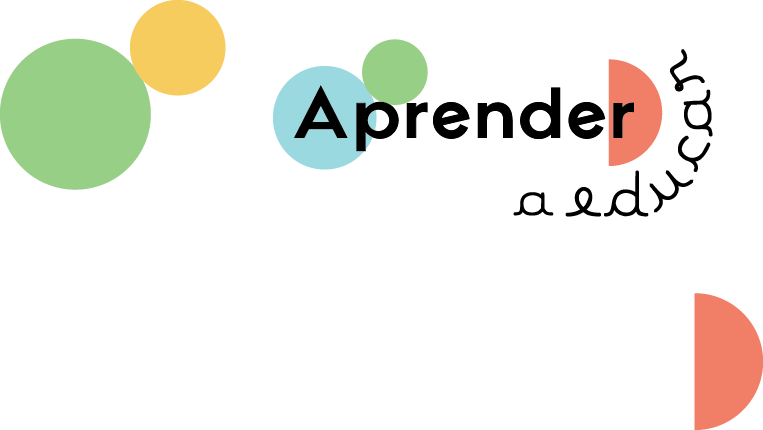The start of a new academic year is always a time of great anticipation, and for new undergraduate students it can be a real challenge. To help with this transition, we've gathered some valuable tips and advice from four second-year undergraduate students, as well as several useful suggestions from faculty. Let's find out what they have to say!

“Don't study just for the grades!”
Mariana Gomes, 2nd year Psychology student

As a first-year student, Mariana wishes she'd been told that the dynamics of university are not so different from those of secondary school. “We still have a class, lessons, tests, and homework. There's no need to scare students by saying it's going to be completely different and that we're already adults”, she says. The key to success? Study intelligently, organise yourself well and use classes as moments of active learning.
Mariana's advice for new students:
- Explore the Faculty: there are many useful places to study, eat and socialise that many students don't know about, and which can be very useful.
- Look out for the information signs: they point you in the right direction to the library, bar and buildings.
- Know the buildings: it's important to know where each building starts and ends to avoid confusion.
The student stresses the importance of taking part in activities to create support networks. “I signed up for different activities and met older students and teachers, which helped me gain experience”.
Time management and pressure were the main challenges for Mariana. “It took some time, but I learned to get involved in activities I enjoy and to study to learn, not just to get good grades”.
“Creating a study plan”
Sara Jesus Pestana Freitas, 2nd year Psychology student

When she was studying at the Faculty of Education and Psychology, Sara would have liked to have known that the faculty cared about the students and provided support material. “The faculty helps and answers questions, and we have access to the bibliography on the online platform”.
Sara's tips for new students:
- Explore the floors and buildings: each building has its own name, such as EC - Central Building; EA - Arts Building; EBI - Biotechnology Building; and ER - Restoration Building.
- Identify the faculty offices: they are on the 2nd floor of the Arts Building.
- Use the study room and library: this is where you can study for exams and consult books.
Sara found support from her classmates and the Students' Association. “I signed up for different initiatives and felt part of an academic community”.
Adapting to a new city and a new routine was a challenge for Sara. “It was essential to set up a timetable to fit in all the activities”.
“Take advantage of the experiences that the university offers, such as volunteering”
Mafalda Parente, 2nd year Psychology student

In the transition from secondary to higher education, Mafalda wishes she'd been told that not everything depends on grades. “There are many other important interpersonal and intrapersonal skills. Take advantage of the experiences that the faculty offers, such as volunteering”.
The student created support networks by joining the faculty's student union. “This decision brought me into contact with older students who helped me in my first year, from borrowing summaries to answering questions”.
Mafalda says her biggest challenge was staying focused when she was on the computer. “I had to discipline myself to use the computer only to take notes and do research. Now it's an essential tool in my studies”.
Mafalda's tips for new students:
- Make the most of your classes: pay attention and answer any questions.
- Take part in the experiences offered by the university: combining these experiences with classes and studying can be an asset.
- Avoid accumulating material: make summaries throughout the semester to make it easier to study for exams.
“Lists are my salvation”
Beatriz Valongo, 2nd year Psychology student

A Beatriz queria que lhe tivessem dito para nas aulas fazer todas as perguntas e tirar todas as dúvidas. “Mais vale fazer perguntas consideradas ‘parvas’ do que ir com dúvidas para casa”.
Beatriz wishes she'd been told in class to ask all the questions and answer all the doubts. “It is better to ask questions that are considered 'stupid' than to go home with doubts”.
The student created support networks by meeting as many people as possible and identifying those with whom she identified best. “It was a kind of natural selection that we managed to do”.
Beatriz's main challenges? Making new friends, adapting to a new teaching method and managing her time and emotions. “Lists are my lifeline. They help me organise my thoughts and overcome frustrations”.
Beatriz's tips for new students:
- Get good support: external motivation is one of the keys to overcoming challenges.
- Get organised: a good timetable will help you make the most of all the opportunities the university has to offer, both inside and outside the course.
- Adapt your study dynamics to each course unit (UC): each UC has its own peculiarities and it's normal to get lower grades than in high school.
What do faculty suggest?
Alexandra Carneiro, coordenadora da licenciatura na Faculdade de Educação e Psicologia (FEP-UCP)

Alexandra Carneiro coordinator of the Degree in Psychology at the Faculty of Education and Psychology (FEP-UCP), offers some useful tips for students starting their first year of study.
- Take advantage of mentoring sessions to help you adapt and succeed in higher education;
- Join a research team through the Researcher's Club;
- Join groups/associations at your university and faculty, such as the Students' Association;
- Study to be a good professional, not to get a good grade in an exam;
- Take your own notes in class;
- Ask your classmates or colleagues from other years for help if you're struggling and their experience is useful;
- Take advantage of group work to develop transversal skills;
- Take advantage of any opportunities that arise to learn more and become more aware of work in the field of psychology.
Welcome and have a good school year!





